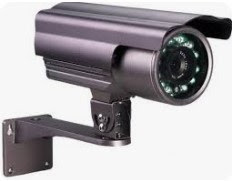A Network Video Recorder (NVR) is a specialized device that records and stores video footage from IP (Internet Protocol) cameras. NVRs are commonly used in CCTV (Closed-Circuit Television) systems for surveillance and security purposes. Here are some key points about CCTV NVRs:
1.
Compatibility with IP Cameras:
Ø NVRs are designed to work specifically with IP cameras,
which are digital cameras that use the Internet to transmit and receive data.
Ø They support a variety of IP camera models from different
manufacturers, allowing users to choose cameras based on their preferences and
needs.
2.
Video Recording and Storage:
Ø NVRs record video footage from connected IP cameras onto
built-in hard drives or external storage devices.
Ø The capacity of the storage depends on the NVR model and
can often be expanded by adding additional hard drives or using
network-attached storage (NAS) devices.
3.
Network Connectivity:
Ø NVRs are connected to the network, enabling users to
access the recorded footage remotely. This is particularly useful for
monitoring and managing the system from different locations.
Ø They may have Ethernet ports for wired connections or
support Wi-Fi for wireless connectivity.
4.
Remote Viewing and Management:
Users
can view live or recorded footage remotely using various devices such as computers,
smartphones, or tablets through dedicated software or mobile apps provided by
the NVR manufacturer.
5.
Video Compression:
NVRs
often use video compression techniques, such as H.264 or H.265, to efficiently
store video footage while maintaining reasonable image quality. This helps in
optimizing storage space.
6.
Motion Detection and Alerts:
Ø Many NVRs support motion detection, allowing the system
to start recording when motion is detected. This helps in saving storage space
and focusing on relevant events.
Ø Alerts can be configured to notify users when motion is
detected, enabling timely responses to potential security incidents.
7.
Scalability:
- NVR systems are scalable, meaning you can
add more cameras or expand storage capacity as needed. This makes them suitable
for both small and large surveillance systems.
8.
Integration with Other Security Systems:
Some
NVRs can integrate with other security systems, such as access control or alarm
systems, providing a more comprehensive security solution.
When
choosing a CCTV NVR, it's important to consider factors such as
the number of channels (cameras) supported, storage capacity, remote
accessibility, and compatibility with the IP cameras you plan to use.
Additionally, ensure that the NVR has the necessary features to meet your
specific surveillance requirements.








0 Comments